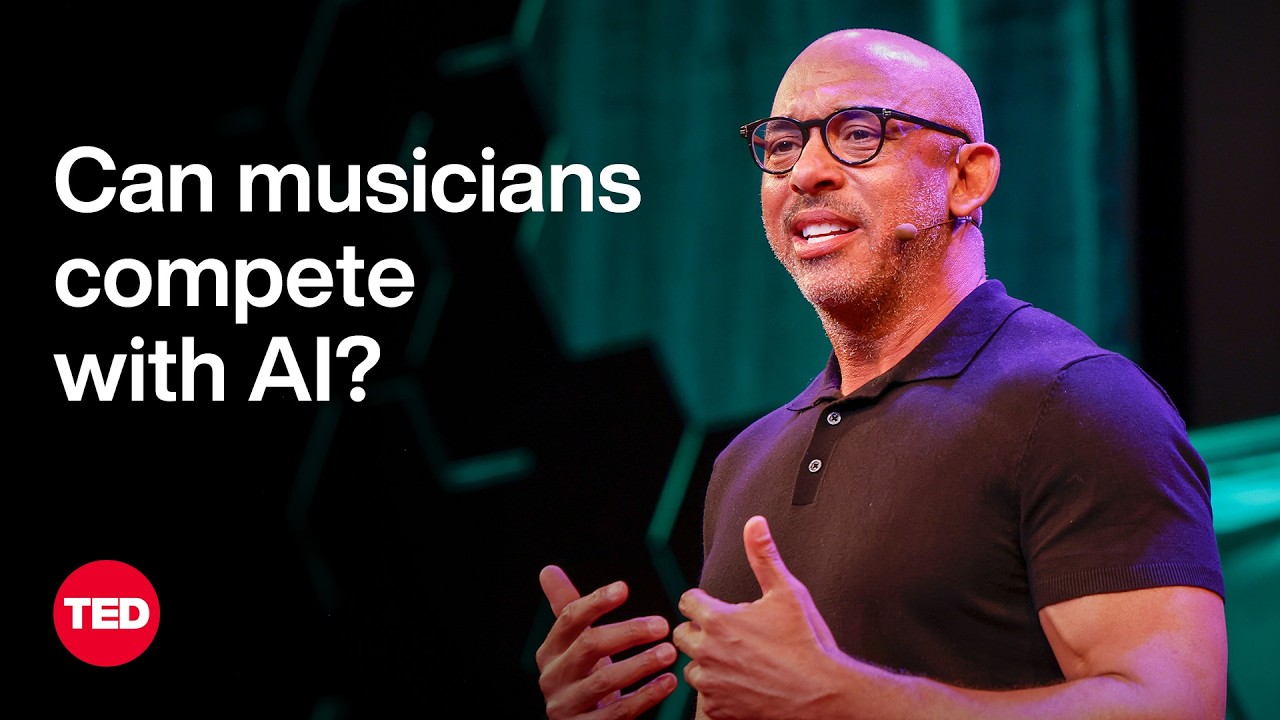In his TED talk, Harvey Mason Jr. discusses the dual impact of artificial intelligence on the music industry, highlighting the need for musicians to understand, adapt, advocate, and compete in this evolving landscape. He emphasizes that while AI poses challenges, musicians can thrive by leveraging their unique human experiences and creativity to create emotionally resonant art.
In his TED talk, Harvey Mason Jr. expresses his deep concerns about the impact of artificial intelligence (AI) on the music industry and the livelihoods of music creators. As a seasoned songwriter and the CEO of the Recording Academy, he has a unique perspective on the dual nature of AI as both a powerful tool for enhancing creativity and a potential threat to human artistry. Mason emphasizes the urgency of addressing these challenges and presents a survival guide for musicians navigating the age of AI.
Mason outlines four essential steps for musicians to thrive in this new landscape: understand, adapt, advocate, and compete. The first step, understanding AI, involves gaining knowledge about its capabilities and how it operates. He shares a personal anecdote about his team’s initial reaction to AI-generated music, which left them feeling obsolete and fearful for their careers. This highlights the need for musicians to familiarize themselves with AI technology to mitigate its potential risks.
The second step, adapting, is crucial for survival. Mason reflects on the history of technological advancements in music, noting how musicians have always found ways to incorporate new tools into their craft. He recounts his father’s experience with the introduction of drum machines, illustrating how embracing technology can enhance rather than threaten a musician’s career. This adaptability is vital for artists to remain relevant and continue to express their creativity.
Advocacy is the third step Mason emphasizes. He stresses the importance of engaging with various stakeholders, including tech developers, lawmakers, and industry leaders, to ensure that human creativity is protected. Mason shares his experiences meeting with influential figures, including the head of the copyright office and members of Congress, to discuss the implications of AI on copyright and artistry. His efforts aim to promote legislation that safeguards human creativity in the face of advancing technology.
Finally, Mason discusses the need for musicians to compete by leveraging their unique human experiences and emotions in their art. He believes that while AI can generate music, it cannot replicate the depth of human storytelling and emotional connection. By tapping into their personal narratives and creative instincts, musicians can create work that resonates on a profound level. Mason concludes by affirming the transformative power of music and the importance of human creators in shaping the future of the industry, urging them to embrace the challenges and opportunities presented by AI.
